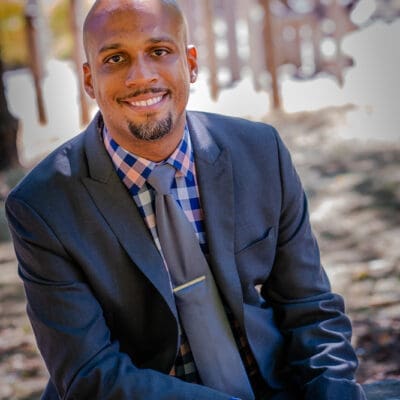Ashton is a community organizer, former U.S. Air Force Civil Engineering Technician, and a graduate of PSU’s Community Development undergraduate program. As a progressive Black man growing up in Houston, and now living in Portland, he has seen firsthand the unequal development present in our pedestrian infrastructure, and the dangers this presents for vulnerable communities. “We must reimagine what pedestrian safety and healing looks like for our communities, and work to remove the barriers that prevent low-income communities from having the representation, investment, and infrastructure they deserve”. Ashton will fight to ensure that every community is a walkable one!
Through all these experiences he has gained insight into transportation systems and how they should work to serve all people. He understands that when a core urban function such as pedestrian infrastructure is thriving, cities, communities, and our environment are better for it. As a disabled veteran, he has observed many areas of needed improvement in communities across America. As a result of this experience, Ashton intends to see that publicly funded projects improve pedestrian safety for everyone, especially people living in under-resourced neighborhoods who bear the disproportionate brunt of the state’s traffic fatalities.
Ashton has had the privilege of being heavily involved in transportation justice work in Portland. His work at The Rosewood Initiative has allowed him to be directly involved in local transportation advocacy over the past few years. He is engaged with the City of Portland’s Pricing Options for Equitable Mobility Task Force, Rose Lane Advisory Committee, and is the co-chair of the Fixing Our Streets Oversight Committee. Ashton also served on the Multnomah County Local Investment Team for the Metro Transportation measure, where he advocated for safer streets.
Ashton has been able to fight for his community to have access to a multi-modal transit system through directing investment in our existing infrastructure and has worked to increase safe and efficient pathways for people. However, he believes more must be done! Transportation funding should be aimed at decreasing our dependence on auto-oriented mobility, and instead promoting pedestrian connectivity, access, and achieving our climate action goals. He understands that we are in the midst of a climate crisis that if left unchecked, will have dire implications globally. Ashton’s top priorities are: advocating for better design in the public right of way, engaging and organizing communities around their pedestrian safety and infrastructure needs, and ensuring that our most vulnerable communities are served first!
